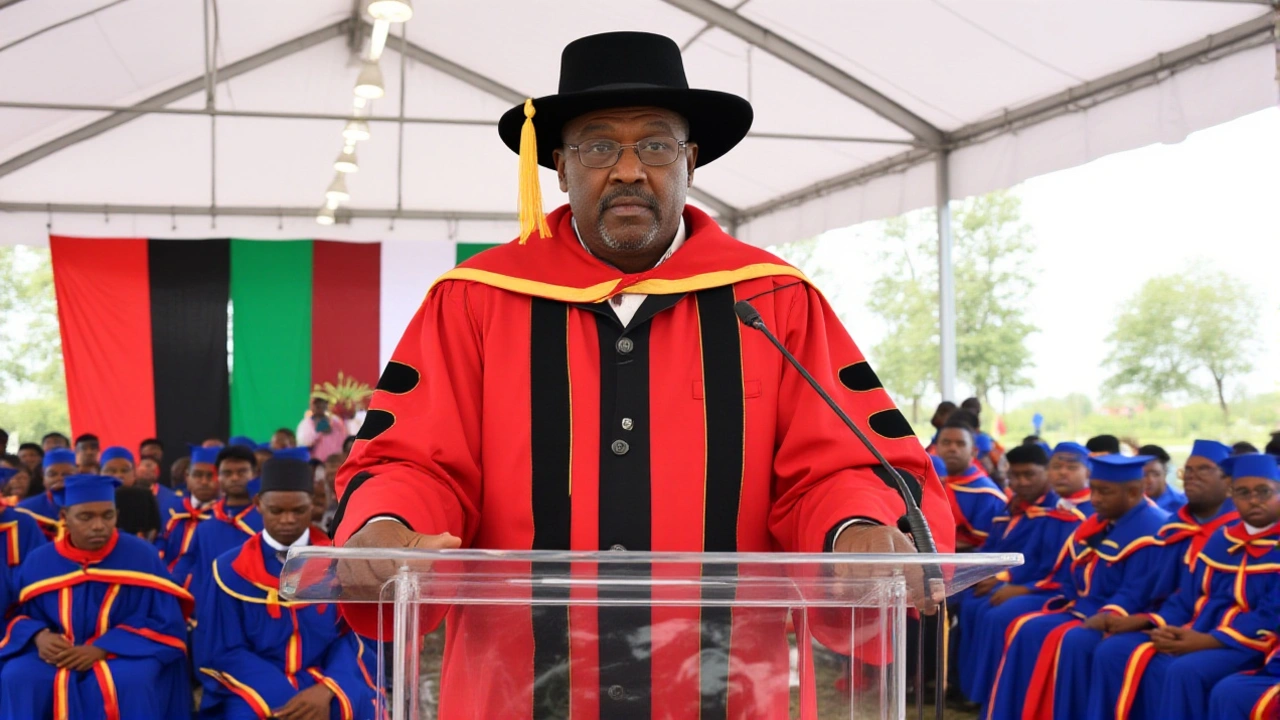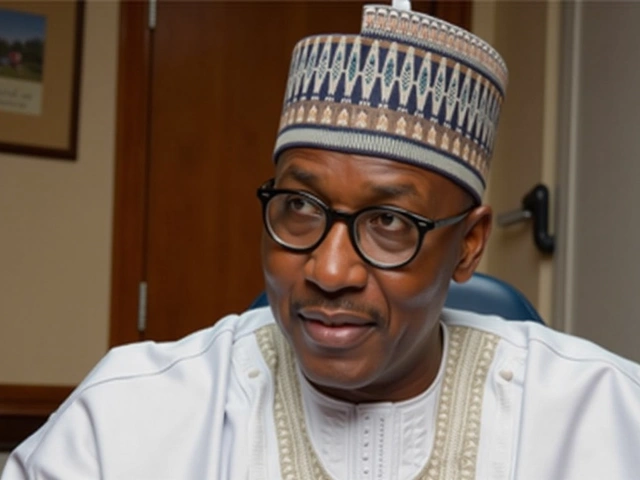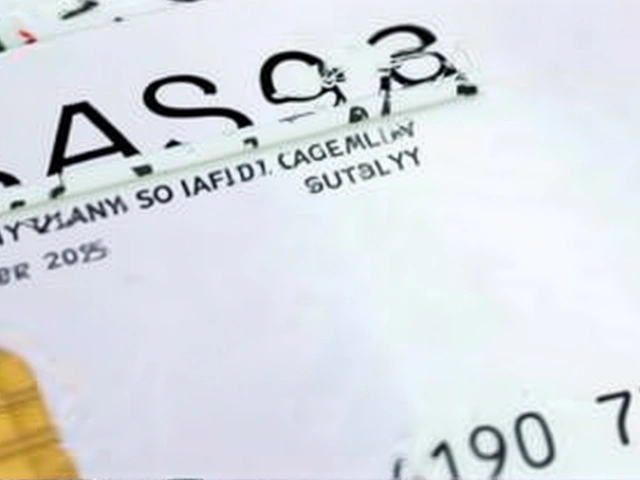Ben Chumo resigns as Kenyatta University Council chair over ministry interference in VC selection

When Ben Chumo walked out of the Kenyatta University Council meeting room on November 17, 2025, he didn’t just leave a chair—he walked away from a broken system. His resignation, submitted to Dr. Julius Ogamba, Kenya’s Education Cabinet Secretary, wasn’t a reaction to union pressure, as many assumed. It was a quiet, deliberate act of protest against government overreach. And it sent shockwaves through Kenya’s higher education sector.
What really happened in the Council room?
The details are chillingly simple. On November 16, 2025, as the Council prepared to finalize criteria for selecting the next Vice-Chancellor of Kenyatta University, a senior official from the Ministry of Education entered the meeting uninvited. Not to observe. Not to advise. To direct. According to Dr. Chumo’s statement to The Star on November 19, the official insisted on altering the recruitment framework, pushing for a candidate aligned with ministry interests rather than academic merit. That, he said, was the point of no return. "When you interfere with the process, the outcome becomes compromised," Chumo told reporters. "Things do not go wrong—they start wrong." That line wasn’t just rhetoric. It echoed the constitutional principle enshrined in Section 44 of Kenya’s Constitution: university autonomy. The Council, not the Ministry, is legally empowered to appoint the Vice-Chancellor. But in practice, ministries have long exerted quiet influence. This time, the interference was public. And Chumo refused to be complicit.The timing couldn’t have been worse—or more telling
The resignation came just hours before the Council’s scheduled November 18 meeting to lock down recruitment rules. It also followed a legal bombshell: on November 17, a petition was filed in the Employment and Labour Relations Court in Nairobi, demanding that outgoing Vice-Chancellor Prof. Paul Wainaina be barred from participating in choosing his own successor. The petition argued that his involvement created a conflict of interest—a claim Wainaina’s office called "legally baseless." But the real conflict wasn’t legal. It was institutional. Kenyatta University, established in 1972 and home to 42,000 students and 3,500 staff, operates under a delicate balance: academic freedom versus state oversight. The Council, composed of 15 members including academics, alumni, and government appointees, is supposed to be the final gatekeeper. Yet the Ministry’s intrusion signaled that even that firewall was crumbling.Who’s really behind the pressure?
Rumors swirled that the Kenya Universities Staff Union (KUSU) had pushed Chumo out. After all, on November 11, KUSU’s KU branch had issued a letter criticizing the Council’s handling of the recruitment. But Chumo dismissed this outright. "I have faced far greater pressures leading large organisations," he said. "Nothing could be further from the truth." KUSU, representing over 15,000 staff across Kenya’s 36 public universities, responded to his resignation not with celebration, but with cautious relief. "It’s a chance for a smooth transition," said KUSU spokesperson Dr. Amina Mwangi on November 19. "We want the process to be transparent, not political." The irony? Chumo’s departure may have cleared the air. His resignation removed the most visible obstacle to reform. Without him, the Ministry’s meddling looks less like governance and more like control.What’s at stake for students and staff?
Prof. Wainaina’s term ends January 31, 2026. If a new Vice-Chancellor isn’t appointed before then, Kenyatta University risks a dangerous administrative vacuum. No leader means no budget approvals, no faculty promotions, no research grants. Classes may continue—but the institution stalls. The Council reconvened on November 20, 2025, to ratify new selection criteria. They’ve since formed a 7-member selection committee, with two members appointed by the Senate and three by the Council. The final shortlist must be submitted to the President’s office by December 15, 2025, as mandated by the Universities Act, 2012. But the clock is ticking. And trust is broken.The bigger picture: Is this just Kenyatta—or the beginning of a trend?
This isn’t the first time a university chair has resigned over interference. In 2020, the Chair of Moi University Council stepped down after similar pressure. In 2022, a panel of academics warned that 7 out of 10 public universities had experienced "undue executive influence" in VC appointments. What makes Chumo’s case different? He didn’t leave quietly. He spoke. And he named the problem: compromised processes. His resignation has ignited a national conversation. Are Kenyan universities still autonomous institutions—or extensions of government patronage?What happens next?
The Ministry of Education has yet to appoint a new Council Chair. In the meantime, Deputy Chair Dr. Naomi Kariuki is acting as interim leader. But her authority is fragile. The real test comes in December, when the President’s office reviews the shortlist. Will they choose a candidate vetted by academics—or one vetted by bureaucrats? Meanwhile, students are organizing. On November 22, over 2,000 Kenyatta students marched to the university gates, holding signs that read: "We don’t want a political VC. We want a leader." Chumo’s resignation wasn’t an end. It was a beginning.Frequently Asked Questions
Why did Ben Chumo resign if not because of KUSU pressure?
Dr. Ben Chumo explicitly rejected claims that the Kenya Universities Staff Union (KUSU) pressured him out. His resignation was triggered by direct interference from the Ministry of Education during a Council meeting on November 16, 2025, where officials attempted to dictate recruitment criteria. He stated this compromised the integrity of the entire process, violating university autonomy under Kenya’s Constitution.
What role does Prof. Paul Wainaina play in the selection process?
Under Kenyatta University’s Senate-approved procedures, the outgoing Vice-Chancellor is traditionally part of the selection committee to ensure continuity. However, a November 17, 2025 court petition challenged his involvement, arguing it created a conflict of interest. The Council has since reviewed this and confirmed his participation remains valid, pending final legal clarification.
What’s the deadline for appointing the next Vice-Chancellor?
Prof. Paul Wainaina’s term ends on January 31, 2026. By law, under the Universities Act, 2012, the Council must submit its final recommendation to the President’s office by December 15, 2025. Delays risk an administrative vacuum, affecting budgets, staff promotions, and research funding for Kenyatta University’s 42,000 students.
How does this affect students and academic staff?
With no confirmed Vice-Chancellor, key decisions—from hiring new lecturers to approving research grants—are frozen. Over 3,500 staff face uncertainty, and students fear delays in course accreditation and library funding. The November 22 student protest highlighted growing anxiety that political appointments could undermine academic quality at one of Kenya’s largest universities.
Is this a sign of broader government interference in Kenyan universities?
Yes. In 2020, the Moi University Council chair resigned under similar circumstances. A 2022 academic study found seven of Kenya’s 36 public universities reported direct executive interference in VC appointments. Chumo’s case is the most public example yet, and it has reignited calls for constitutional enforcement of university autonomy under Section 44.
Who will replace Ben Chumo as Council Chair?
As of November 23, 2025, the Ministry of Education has not appointed a new Chair. Deputy Chair Dr. Naomi Kariuki is serving as interim leader. The appointment requires Cabinet approval and must be made within 30 days under the Universities Act. Many observers expect the Ministry to choose someone perceived as more "cooperative," raising concerns about future independence.






Jacquelyn Barbero
November 22, 2025 AT 05:05toby tinsley
November 23, 2025 AT 16:58Chris Richardson
November 24, 2025 AT 13:11Arvind Pal
November 26, 2025 AT 08:43Pete Thompson
November 27, 2025 AT 02:42Richard Berry
November 28, 2025 AT 20:52Sandy Everett
November 29, 2025 AT 21:46J Mavrikos
December 1, 2025 AT 04:46Stuart Sandman
December 1, 2025 AT 21:58DJ Paterson
December 2, 2025 AT 22:20